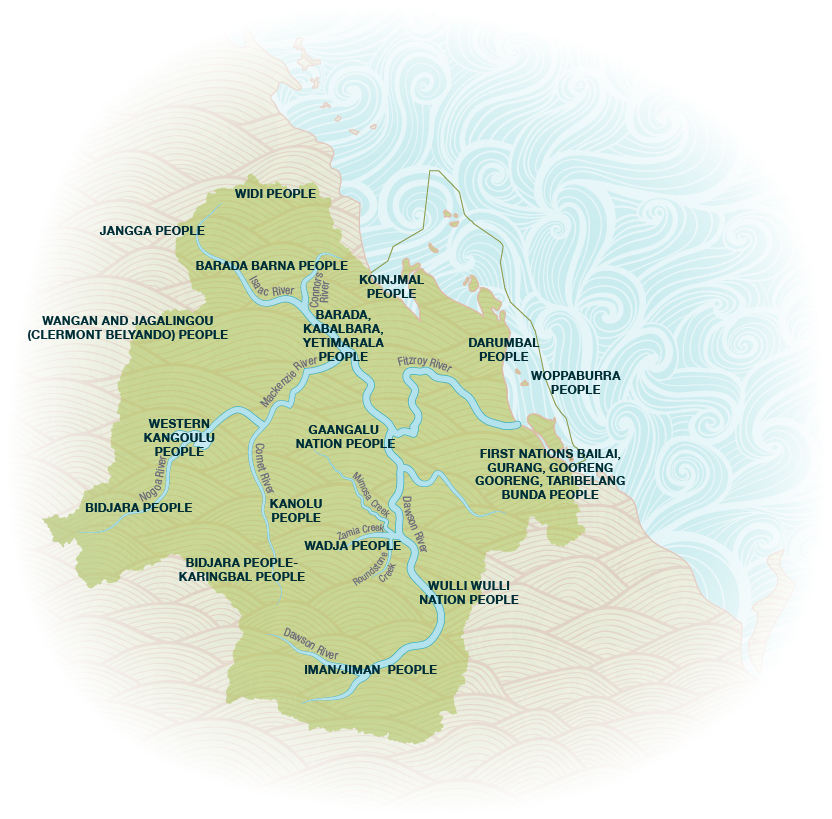First Nations of the region
Please note all content on this page is in negotiation.
Australia’s First Nations (also known as Traditional Custodians or Traditional Owners) have holistically managed Australia and its waterways for countless generations.
First Nations in the area covered by today’s CQSS2030 region are represented by registered Cultural Heritage Bodies/Parties, Native Title Applicants, and Native Title Prescribed Body Corporates. Some individuals and groups prefer to be acknowledged as First Nations, while others prefer Traditional Custodians or Traditional Owners (First Nations is used throughout the CQSS2030, however it is always polite to check with individuals and groups you speak with).
Access to country still presents challenges to several First Nations who need access to their lands to care for Country. Currently, there are 16 First Nations Groups recognised by either State or Federal legislation (you can learn more about First Nations’ cultural heritage and Native Title by clicking the buttons below).
A key difference between western and First Nation’s approaches to planning and management is the line drawn between culture and nature. For First Nations, there is no division; the whole landscape is cultural, and people and Country are inseparable from one another. Get to know and understand how each Group is caring for Country by clicking on the tiles below the map.

Bidjara People
Our cultural, spiritual, and traditional connections to Country define us as Bidjara People. As Traditional Owners we retain custodial rights and obligations to manage our Country, and to protect and recognise our way of life. Self-determination and self-management are critical to managing our Country and health, just as maintaining our language and land are essential to our identity.
Kanolu People
We believe that the whole landscape should be considered a cultural site as Kanolu People and Country
cannot, and should not, be treated as separate from one another. All species have significance to us, and all have a relationship within the ecology on Kanolu Country.
Wadja People
We are connected to Country and have traditional rights and interests to all Wadja land and waters through our traditional law and customs, and built through countless generations living in intimate connection with Country.
Woppaburra People
People need to know who we are; it’s not only our relationship between land and water but it’s us and the science. With our land and sea Country management, we want to do this a certain way that’s sustainable, respectful and efficient (eco-friendly).